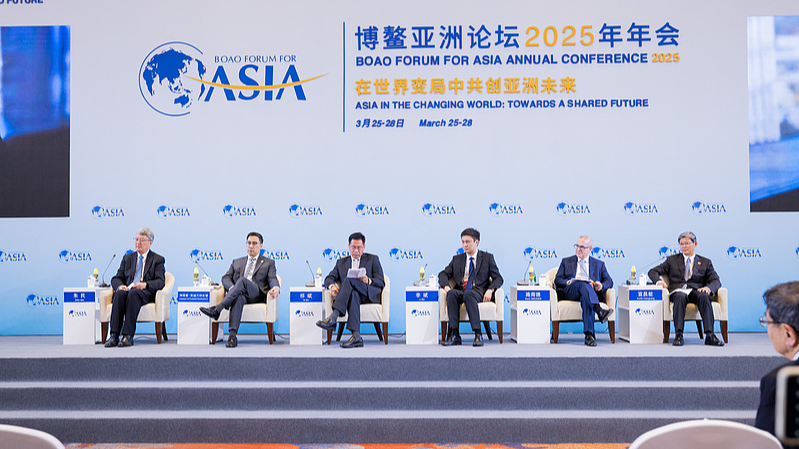China is emerging as a stabilizing force in an increasingly volatile global supply chain landscape. At the Boao Forum for Asia Annual Conference 2025 held in south China’s Hainan Province, experts emphasized that stronger regional connectivity and openness are critical in a time when rising protectionism threatens to disrupt trade flows.
During a sub-forum discussion, Akylbek Zhaparov, former chairman of the Cabinet of Ministers of the Kyrgyz Republic, stressed the need for stability, noting, "In a world filled with uncertainty, maintaining stable supply chains is crucial." He highlighted the China-Kyrgyzstan-Uzbekistan railway project—a flagship Belt and Road Initiative endeavor—as a key example of how infrastructure investment is opening new trade routes and offering landlocked nations access to global markets.
Yasiru Bandara Ranaraja, founding director of Belt & Road Initiative Sri Lanka, recalled the historic 2017 Belt and Road Forum for International Cooperation in Beijing. That milestone forged a cohesive regional network that has since helped decentralize traditional trade routes in Asia, creating more resilient channels for commerce.
Data presented at the forum underscored Asia’s pivotal role in global manufacturing: in 2023, the region contributed 41.17% of global trade in intermediate goods, compared to 25.5% from the European Union. This performance is seen as a direct outcome of China’s unwavering commitment to opening up its markets. Recent policy measures have expanded access in sectors such as value-added telecommunications and healthcare, eased manufacturing investment restrictions, and enhanced free trade agreements—totaling 23 agreements with 30 countries or regions as of January 2025.
Industry leaders have lauded these initiatives. Temir Porras, managing director of Global Sovereign Advisory, remarked that China offers a stable free trade framework that benefits emerging and fragile economies alike. Executives from major companies have also noted the appeal of establishing production bases in China, citing the extensive global customer base and dynamic local innovation ecosystem.
In a forward-looking perspective, Denis Depoux, global managing director of Roland Berger, suggested that Chinese companies should evolve from a "Made in China" model to a "Designed in China" approach. This shift would not only bolster international competitiveness but also encourage deeper cooperation with host countries, paving the way for true multinational partnerships.
As the Chinese mainland continues to champion openness and regional connectivity, these efforts are positioning the country at the heart of a reimagined global supply chain—one designed to meet the challenges of a changing economic and geopolitical landscape.
Reference(s):
China boosts global supply chain via openness, regional connectivity
cgtn.com




